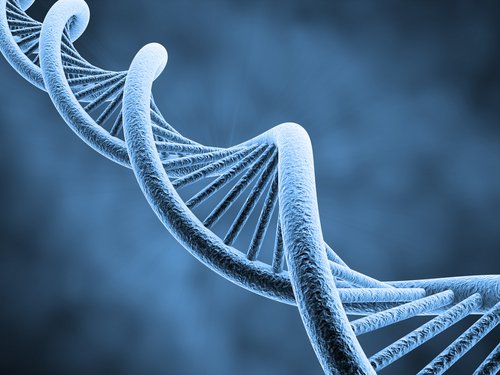The genetics
Genetics (from the Greek genno γεννώ, "give birth") is the science that studies heredity and genes, it is a sub-discipline of biology.
One of its branches, formal genetics, or Mendelian, is interested in the transmission of hereditary traits between spawners and their offspring.
The invention of the term "genetics" comes from the English biologist William Bateson (1861-1926), who uses it for the first time in 1905. Modern genetics is often dated from the demonstration of the double helix structure of the DNA made by James Watson and Francis Crick in 1953 [1].
Different search fields Edit
Early on, genetics diversified into several different branches:
Developmental genetics studies the molecular actors (and the genes that code them) involved in the formation of the organism from the unicellular stage of the fertilized egg. It focuses in particular on the establishment of bilateral symmetry and the mechanisms that make it possible to move from a simple biological system (unicellular, radially symmetrical) to a complex organism (multicellular, often metamerized, and built into specialized organs). She often uses model species to study the mechanisms of formation of the body (Drosophila, the nematode Caenorhabditis elegans, the zebrafish, a plant of the genus Arabidopsis);
medical genetics studies the inheritance of human genetic diseases, their segregation in families of patients. In this way, it seeks to identify the mutations responsible for diseases, in order to develop treatments to treat them;
genomics studies the structure, composition and evolution of genomes (all of DNA, three billion base pairs in humans, organized into chromosomes), and attempts to identify motifs in DNA may have biological meaning (genes, untranslated transcribed units, miRNAs, regulatory units, promoters, CNGs, etc.);
quantitative genetics studies the genetic component explaining the variation of quantitative traits (size, coat color, growth rate, concentration of a molecule, etc.) and their heritability;
evolutionary genetics studies the signatures of natural selection on the genome of species, and attempts to identify genes that have played a critical role in species adaptation and survival in changing environments;
population genetics studies the forces (and their effects) that influence the genetic diversity of populations [2] and species (mutation, drift, selection) by (among others) the development of mathematical and statistical models.
chronological genetics studies the age of the separation of species by relying on the genetic difference between them and the rate of increase of the genetic difference, calibrated by another method of chronology, of the group of species of which they make part.
Heredity, which studies the phenotype and tries to determine the underlying genotype, is still based on Mendel's laws. Cell biology and molecular biology study genes and their material support (DNA or RNA) within the cell, cell biology for their expression. The progress of the genetic engineering branch, genetic engineering, has made it possible to pass the stage of the simple study by succeeding in modifying the genome, implanting, removing or modifying new genes in living organisms: these are the genetically modified organisms (GMOs). The same progress has opened a new therapeutic approach: "gene therapy". It involves introducing new genes into the body in order to compensate for hereditary deficiency.
The ever-increasing evolution of knowledge in genetics poses several ethical issues related to cloning, the various types of possible eugenisms, the intellectual property of genes and the possible environmental risks of GMOs. The understanding of the functioning of the cellular machinery is thus made more complex: in fact, the more we study it, the more actors are numerous (DNA, messenger RNA, transfer, microRNA, etc.) and the number of feedbacks ( splicing, editing, etc.) between these actors grows